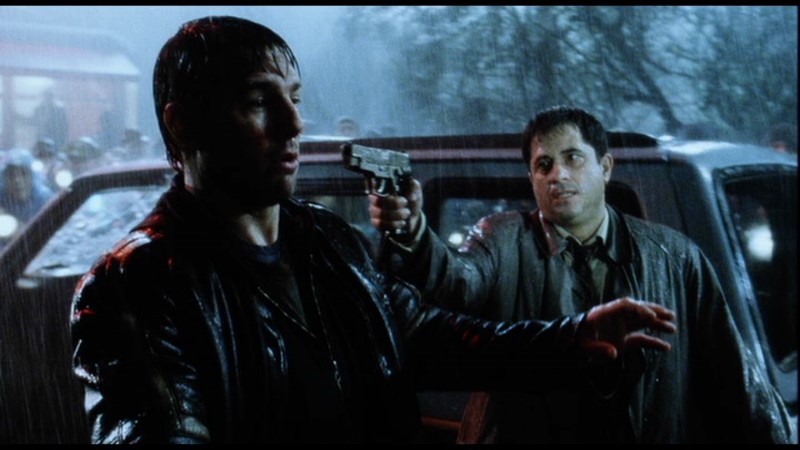Steven Spielberg's filmography is an interesting one. Rather than making a film every year like Woody Allen or making a film every few years like the rest of the filmmaking community, Spielberg seems to approach his career like a sprinter. Years will elapse between projects and then all of a sudden he will make several films back to back. At least six times in his career he has released two films in the same calendar year. In order to accomplish this, he has to be working on projects concurrently. Editing the previous one in the evening while directing the current one in the day, tinkering with the screenplay for one between takes of another. Inevitably this has to result in some sort of cross-over. Though it's not really apparent how Jurassic Park influenced Schindler's List, the dialogue between War of the Worlds and Munich is undeniable. Viewed together you really get a sense of what Steven's brain looked like post-9/11.
The weird swirl of unrelenting horror mixed with unrealistic hope that makes up War of the Worlds seems to indicate a filmmaker who is caught in deep conflict between what he is authentically feeling and a desire to deliver what he believes audiences want. The result is nearly Brechtian in how alienating it is. After all the rivers of bodies and human savagery, the film's ending is such a blatant fabrication that Spielberg seems to be practically begging us to cry foul. But was he really intentionally toying with us? Or was he just unintentionally lying to himself? As much as I want it to be the former, upon revisiting the angry/cynical conclusion to Munich, I get the distinct feeling that it was actually the latter. Well at least whatever needed to be purged finally got out...so that he could make Indiana Jones and the Kingdom of the Crystal Skull completely unencumbered by angst.


I saw this film back when it came out (and haven't seen it since), so my memory's a bit fuzzy, but the ending did seem a bit too good to be true. It's actually a weird inversion of the ending in Wells' novel, despite being superficially similar.
ReplyDeleteFor Wells, who wrote The War of the Worlds at least partially as a commentary on British imperialism, it forced the reader (often unwittingly) to take the side of the exploited. Here was mighty Britain being conquered by a foreign force. In the end, they were saved not by their technology, their culture, or their bravery, but by happenstance.
In Spielburg's film, the germs feel more like a deus ex machina. The bacteria that fell the invaders come across like American allies, rather than an impartial force of nature (an attitude underscored by the final scenes, where soldiers blast the abandoned tripods). While the victory of the germ is humbling in Wells' version, it's practically triumphalist in Spielburg's. It's basically a less explicit version of the ending to George Pal's version in the '50s, where the germs were basically sent by God (reflecting and responding to the threat of communist atheism).